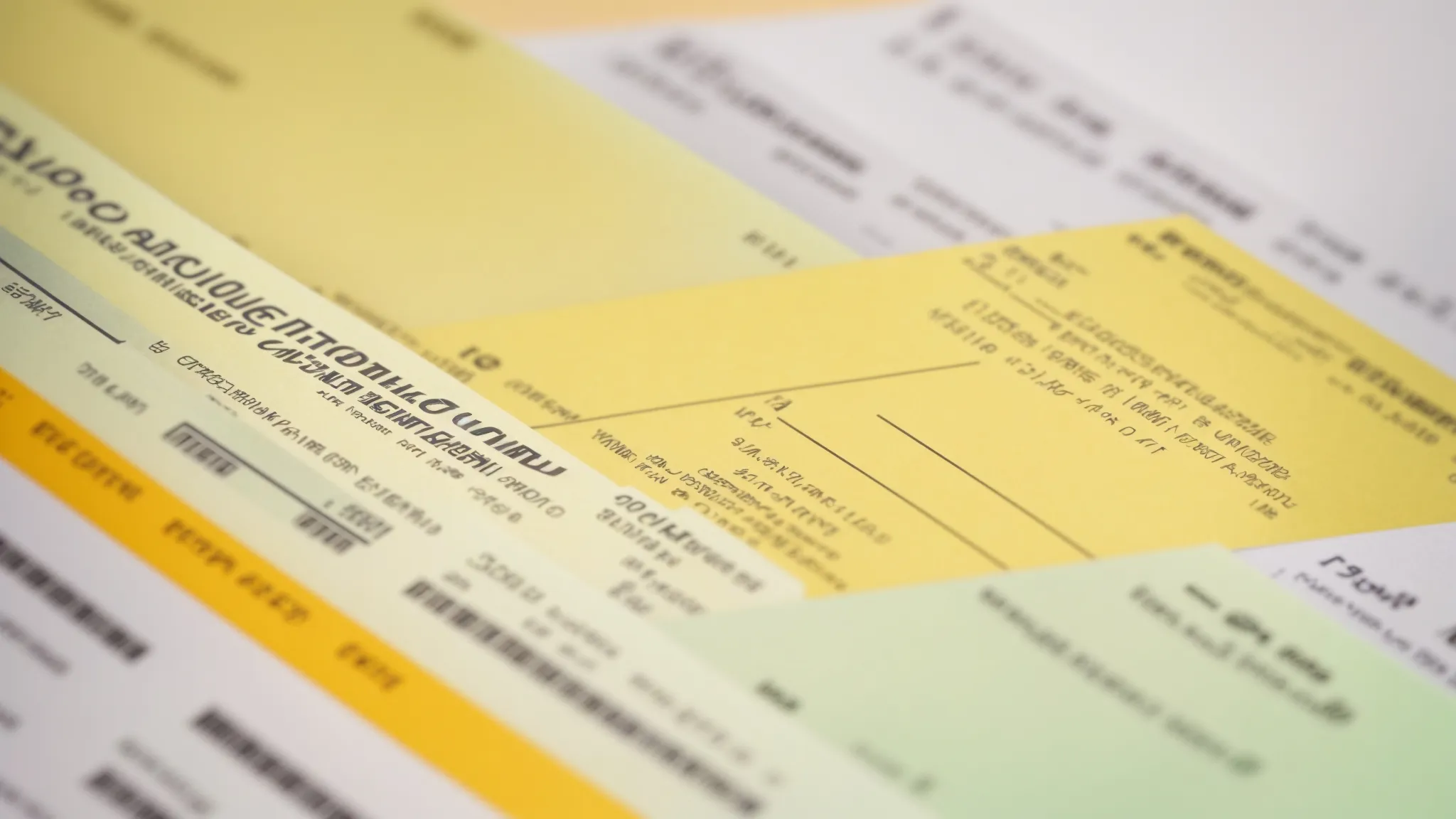Receiving incorrect cheque orders can lead to significant disruptions for small to medium-sized businesses. Identifying the common issues, knowing the immediate steps to take, and understanding effective solutions can make a difference. This guide will help readers navigate these challenges efficiently, from resolving order discrepancies to communicating with banks. By following these steps, business owners can minimize delays, maintain financial accuracy, and enhance their overall cheque ordering experience. If mistakes have impacted your operations, this article will provide the necessary insights to resolve those issues effectively.
Understanding Common Issues With Incorrect Cheque Orders

Identifying different types of cheque order errors is essential for addressing discrepancies effectively. Understanding the impact of incorrect cheque orders can help businesses maintain accuracy and reputation. Common causes of these issues often stem from mistakes in the database or inadequate checks on the ip address used during the order process. This overview will guide readers through each topic, providing practical insights to enhance their cheque ordering practices.
Identifying Different Types of Cheque Order Errors
Cheque order errors can occur in various forms, primarily due to miscommunication or data entry mistakes within the ordering system. Common issues include incorrect billing addresses, mismatched bank information, or even discrepancies in cheque numbers. Identifying these errors early is vital; for example, if a database features outdated information, it could lead to significant delays in fulfilling orders and impact client trust.
The order process may also be affected by server-related issues, such as connectivity problems that can disrupt data transfer or rendering incorrect information within the permalink. Such hiccups prevent accurate communication between the client and the cheque manufacturing service. Monitoring the ordering process with an effective sensor to detect these issues can ensure smoother operations and help businesses avoid potential setbacks in their cheque ordering activities.
Understanding the Impact of Incorrect Cheque Orders
Incorrect cheque orders can create considerable problems for businesses, leading to delays and potential financial loss. When cheques are issued with inaccurate information, such as wrong names or account numbers, this can result in rejection by banks. These discrepancies not only hinder transactions but also damage the trust between businesses and their clients, making it crucial to address these issues promptly.
The impact of incorrect cheque orders extends beyond immediate challenges; it can affect a company’s long-term reputation and operational efficiency. If clients repeatedly receive cheques with errors, they may feel frustrated and seek alternatives, which can result in lost business. To mitigate these risks, businesses should implement a robust order verification system that allows for timely replies to any errors and maintains customer relationships.
Common Causes of Cheque Order Discrepancies
Cheque order discrepancies often arise from simple but critical errors during data entry. Common issues include incorrect billing addresses, mismatched account details, and errors in cheque formatting. These mistakes can happen due to outdated database information or human oversight when inputting data, leading to complications in the ordering process that require prompt attention to resolve.
Another significant cause of discrepancies is inadequate validation processes during the order fulfillment stage. If checks are not put in place to verify information against the source database, errors can easily slip through. Establishing a rigorous order verification procedure can help identify and rectify these issues, ultimately enhancing efficiency and maintaining the trust of clients who depend on accurate cheque processing.
Mistakes happen, even with cheques. When they do, knowing what to do next can save time and money.
Immediate Steps to Take When You Receive an Incorrect Cheque Order

When confronting an incorrect cheque order, immediate action is crucial. First, contacting the issuer for clarification can help clarify the nature of the discrepancies. Next, reviewing original order details ensures all information aligns with the received product. Lastly, documenting the discrepancy for records will provide a clear reference for future communications and help prevent similar issues down the line.
Contacting the Issuer for Clarification
When a business receives an incorrect cheque order, the first step should be to contact the issuer for clarification. This initial communication is crucial as it helps identify and understand the specific nature of the discrepancies, whether they involve incorrect names, account numbers, or other details. By reaching out promptly, businesses can address the issue directly, paving the way for a swift resolution that minimizes disruption and maintains trust with clients.
During this conversation, it is important to have the original order details on hand to facilitate a productive discussion. This can include reviewing order confirmations and shipping documents to ensure that both parties are on the same page. Clear communication at this stage not only allows for the quick rectification of errors but also provides valuable insights into improving future cheque orders, thereby enhancing overall operational efficiency.
Reviewing Your Original Order Details
Reviewing the original order details is an essential step in resolving incorrect cheque orders efficiently. Businesses should closely examine documents such as order confirmations or invoices to verify that all information, including names, addresses, and account numbers, matches the received products. Attention to these specifics can often reveal simple data entry errors or discrepancies that need to be addressed before initiating further action.
This review not only clarifies the nature of the mistakes but also serves as a foundation for effective communication with the cheque supplier. Having original order details readily available allows for a more productive discussion, aiding in the swift rectification of issues. By promptly reconciling these details, businesses can enhance operational efficiency and maintain strong relationships with their clients.
Documenting the Discrepancy for Records
Documenting the discrepancy in an incorrect cheque order serves as an essential step in the resolution process. This documentation should include specific details about the errors encountered, such as incorrect names or amounts, as well as any correspondence with the issuer. Keeping a clear record allows businesses to track the issue systematically and provides a reference point for future interactions, ensuring that similar mistakes can be avoided.
Additionally, comprehensive records enhance accountability and promote efficient communication with cheque suppliers. By maintaining well-organized documentation, businesses can present a solid case when addressing discrepancies, which can expedite resolution efforts. This practice ultimately supports operational effectiveness and helps preserve client relationships by demonstrating a commitment to accuracy and reliability.
You’ve taken the right steps to resolve an error in your cheque order. Now, let’s explore effective solutions for various cheque order dilemmas that may arise.
Effective Solutions for Different Types of Cheque Order Issues

When faced with incorrect cheque orders, businesses need efficient solutions to resolve common issues. This section addresses how to rectify discrepancies in amounts, manage orders with missing signatures, and handle cheques that feature incorrect payee names. Each topic offers practical insights to guide businesses in maintaining accuracy and ensuring smooth cheque transactions.
Resolving Issues With Incorrect Amounts
When businesses encounter discrepancies in cheque amounts, immediate action is essential to rectify the issue. The first step involves verifying the incorrect amount against the original order documentation, ensuring that both parties have a clear understanding of the mistake. This verification process not only aids in identifying the source of the error but also facilitates effective communication with the cheque supplier to initiate corrections promptly.
Once the discrepancy is confirmed, it is important to inform the cheque supplier without delay. Providing them with detailed information regarding the incorrect amounts and any supporting documentation can expedite the resolution process. By maintaining open lines of communication and ensuring accuracy in the details shared, businesses can prevent future cheque order issues, ultimately safeguarding their financial transactions and client trust.
Addressing Cheque Orders With Missing Signatures
When a business receives cheque orders with missing signatures, it is essential to address the issue promptly. The first step involves verifying the original order to determine whether the missing signature was an error during the manufacturing process or if it was overlooked in the completion of the order. Accurate identification of the source will assist in formulating a corrective approach with the cheque supplier, ensuring that the matter is resolved efficiently.
After confirming the absence of signatures, businesses should communicate directly with the cheque supplier to report the issue. Providing specifics about the order, along with documentation illustrating the discrepancy, will aid in expediting corrections. By maintaining an organized and clear dialogue with the supplier, businesses can not only resolve the current issue but also enhance future order accuracy and protect their financial integrity.
Handling Cheques With Incorrect Payee Names
When businesses receive cheques with incorrect payee names, the first step is to confirm whether the error originated from the order or during manufacture. This can involve cross-checking the original order documents against the received cheques. Accurate identification of the source of the discrepancy enables businesses to communicate effectively with their cheque supplier, streamlining the resolution process.
Once the error has been confirmed, businesses should promptly notify the cheque supplier, providing clear details and any necessary documentation to support the claim. In many instances, suppliers can issue corrected cheques quickly upon receiving sufficient information. This proactive approach not only resolves current issues but also reinforces a commitment to precision in future transactions, fostering trust with clients.
Once you solve cheque order issues, the next step is clear. Communicating with banks and financial institutions is key to ensuring smooth transactions and peace of mind.
Navigating Communication With Financial Institutions

Effective communication with financial institutions is critical when addressing incorrect cheque orders. Preparing for discussions with bank representatives will ensure clarity and focus during the conversation. Utilizing FAQs and customer services can also provide valuable support, while following up on inquiries guarantees that concerns are addressed in a timely manner. Each of these strategies plays a vital role in resolving cheque order issues efficiently.
Preparing for Your Discussion With Bank Representatives
Preparing for a discussion with bank representatives requires careful organization and attention to detail. Before reaching out, businesses should gather all relevant documentation related to the incorrect cheque order, including original order confirmations and any correspondence about the issue. This preparation not only streamlines the discussion but also demonstrates professionalism, aiding bank representatives in understanding the circumstances surrounding the discrepancies.
Moreover, articulating the specific details of the cheque order issue is essential for effective communication. Clearly stating the nature of the problem, such as incorrect payee names or amounts, helps guide the bank representative toward a quicker resolution. Keeping the conversation focused and concise will allow for a more productive exchange, ultimately improving the chances of resolving the matter efficiently and restoring confidence in cheque processing.
Using FAQs and Customer Services Effectively
Using FAQs provided by financial institutions can significantly streamline the process of addressing cheque order issues. By reviewing these frequently asked questions, businesses can quickly find answers to common problems, helping them understand standard procedures and required documentation when seeking a resolution. This proactive approach enables businesses to prepare effectively, ensuring they have all necessary information at hand before reaching out for assistance.
Engaging customer service representatives effectively requires clear communication and a thorough understanding of the issue at hand. Businesses should be ready to articulate specific problems, such as incorrect amounts or missing signatures, and have relevant documentation available to support their claims. This clarity not only facilitates faster service but also enhances trust and rapport with representatives, resulting in a more positive resolution experience.
Following Up on Your Inquiry
Following up on inquiries regarding incorrect cheque orders is essential for ensuring that issues are resolved promptly. After the initial communication with financial institutions, businesses should keep track of their inquiries and any responses received. This proactive approach not only holds institutions accountable but also demonstrates commitment to resolving discrepancies efficiently.
When following up, businesses should reference previous conversations and maintain a clear summary of what was discussed. Having well-organized documentation allows for effective communication and can significantly expedite the resolution process. By remaining persistent and clear in their follow-up efforts, businesses can reinforce their need for accurate cheque processing and foster stronger relationships with financial institutions.
Good communication with banks can pave the way for smoother transactions. Now, let’s look at how to safeguard your future cheque orders and avoid complications.
Preventing Future Issues With Cheque Orders

Implementing best practices for ordering cheques is essential for preventing future discrepancies. Keeping accurate records of transactions ensures all details are correct, while establishing double-check systems provides an additional layer of verification. This section will explore these practices, offering actionable insights aimed at enhancing the cheque ordering process and minimizing potential errors for businesses.
Best Practices for Ordering Cheques
Establishing a clear and efficient cheque ordering system is vital for minimizing errors. Businesses should ensure that all relevant information, including names, addresses, and account details, is accurate and up-to-date before placing an order. Regularly reviewing and updating the database helps prevent issues caused by outdated information, thereby maintaining smooth operations and client trust.
Implementing a double-check process for orders can significantly reduce discrepancies. This practice involves having a second individual review the order details before submission, helping to catch potential errors that may have been overlooked initially. Such proactive measures not only enhance accuracy but also demonstrate a commitment to providing reliable financial transactions, ultimately fostering stronger relationships with clients.
Keeping Accurate Records of Transactions
Maintaining accurate records of transactions is essential for businesses to prevent discrepancies in cheque orders. Detailed documentation ensures that all cheque-related information, such as amounts, payee names, and account details, is easily retrievable for verification. By creating a systematic approach to recording these transactions, businesses can quickly resolve issues and improve communication with cheque suppliers and financial institutions.
Moreover, accurate records serve as a valuable reference point when discrepancies arise, allowing businesses to track the history of orders and maintain clarity in their ordering process. Implementing a robust accounting software can facilitate this tracking, simplifying data management and making it easier to produce reports when needed. In doing so, businesses bolster their operational efficiency and minimize the risks associated with incorrect cheque orders.
Implementing Double-Check Systems
Implementing double-check systems is crucial for minimizing errors in cheque orders. Businesses can assign a second individual to verify the details of an order before submission to ensure accuracy in names, amounts, and account information. This additional layer of scrutiny not only helps catch mistakes that may have been overlooked, but it also fosters a culture of diligence that prioritizes reliability in cheque processing.
For example, a small business could develop a checklist that accompanies each order to ensure all critical components meet standards before finalization. This system encourages accountability among team members and can significantly reduce the likelihood of discrepancies arising. Ultimately, well-structured double-check protocols bolster operational efficiency and instill confidence in clients regarding their financial transactions.
Even with careful planning, cheque order issues can arise and disrupt your flow. Recognizing when to bring in a professional can save time and reduce stress in these situations.
When to Seek Professional Help With Cheque Order Problems

Recognizing when to seek professional help with cheque order problems is crucial for maintaining financial stability and trust. Identifying situations that require legal assistance can prevent further complications. Additionally, businesses may benefit from finding financial advisors or legal experts for informed guidance. Exploring consumer protection resources can further assist in addressing issues effectively and ensuring proper resolution.
Identifying Situations That Require Legal Assistance
Recognizing when to seek legal assistance for cheque order problems is essential for safeguarding a business’s financial health. Situations such as repeated discrepancies that affect transaction integrity or significant financial losses due to incorrect cheque processing often warrant professional intervention. Engaging a legal expert can provide insights into compliance issues and help navigate complexities with cheque transactions, ensuring that businesses protect their interests effectively.
Additionally, businesses should consider legal guidance when facing issues related to fraudulent activities involving cheques. If there is evidence of check forgery or unauthorized alterations, proactive steps are necessary to address these concerns legally. Collaborating with legal professionals can help businesses understand their rights and obligations in such scenarios, facilitating effective resolution and minimizing potential repercussions.
Finding Financial Advisors or Legal Experts
Finding financial advisors or legal experts can significantly enhance a business’s ability to resolve cheque order problems efficiently. Professionals with experience in finance or law can provide valuable insights into compliance issues, and their guidance can streamline the resolution process. When searching for the right advisor, it is beneficial to seek recommendations from trusted colleagues or industry networks, as this builds credibility and confidence in the advisory support.
Businesses should consider meeting with potential experts to discuss specific cheque-related challenges, ensuring they understand both the issues at hand and the remedies available. Engaging a financial advisor or legal expert not only equips businesses with the knowledge to navigate complex situations but also fosters a proactive approach to managing cheque order discrepancies. This step can ultimately lead to stronger operational practices and foster trust with clients by demonstrating a commitment to resolving issues effectively.
Exploring Consumer Protection Resources
Businesses facing unresolved cheque order issues may benefit from exploring consumer protection resources. These resources often provide valuable information on rights and obligations regarding financial transactions, assisting businesses in understanding how to address discrepancies effectively. Many provinces have government agencies dedicated to consumer protection, which can offer guidance on filing complaints or seeking mediation when negotiations with suppliers break down.
Additionally, organizations focused on financial literacy can help businesses better understand their responsibilities and the legal frameworks surrounding cheque orders. By utilizing these resources, companies gain insights that enable them to tackle cheque-related problems with greater confidence. Engaging with consumer advocacy groups can also connect businesses to others who have faced similar challenges, providing communal support and practical solutions to navigate the complexities of cheque discrepancies.

